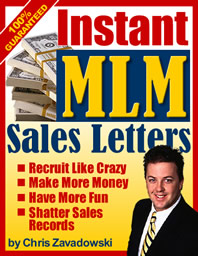One of my earliest mentors had his office walls adorned top to bottom, side to side, with big, handwritten signs intended as cautions to others as well as reminders for himself. If you’ve ever been in a direct sales environment, you’ve probably seen such a place. Two of the biggest signs read “Thumb-Suckers Not Welcome Here” and “You Can Hire Spellers For Minimum Wage”.
He was a millionaire, and in one company, held a commission record at the time of slightly over $1-million earned in 37 months. But he could not spell. And flaunted it. He said that, since you could hire perfect spellers for minimum wage, he preferred learning and thinking about more important things, things it was not so easy to pay cheaply for.
He was talking about the concept of value. Value is fundamental.
In boom times or tough times, in big business or small business or any kind of business, even in any occupation or career, the person who makes himself most valuable and creates the most value for others (as they perceive it and are willing to pay for it) always prospers.
If your income isn’t where you’d like it to be, you’re not creating enough value.
His advice to me, said less elegantly than this, was to find and master something so valuable to enough other people that they will cheerfully pay just about anything for it, and devote all your time and energy to selling and doing that.
Most people who fail to achieve their aspirations in business do the exact opposite. They let themselves be consumed doing things of low value, then are surprised to discover they reap small harvests.
To be fair, getting yourself organized and disciplined to be relentlessly focused on creating value by making yourself more valuable – daily – by always learning more, acquiring and processing more information, running more experiments, making more useful contacts; and by doing the most valuable things you can do is not an easy task.
I’ve written four different books that reveal different paths converging at this same point. Association with others working on this same skill is helpful. Dis-association from those not dedicated to this premise is also helpful.
Which brings me to the other sign.
He had zero tolerance for adults still sucking their thumbs. If you wanted to whine and cry like a baby when something didn’t go your way, you were told to go home, stick a pacifier in your mouth and hug your blankie.
At the time I’m writing this, the economy’s a bit tough and bruising and I hear too many adults who sound like babies. Actually, it’s just one of those times that the entire economy woke up on the wrong side of the bed grumpy and is telling everybody: thumb-suckers not welcome here.
And this must be your personal policy, if you are to prosper and thrive while most others do not. Which is, incidentally, all the time; fewer than 5% have 95% of the wealth flow to them all the time; the disparity is just more stark, the judgment of the critical marketplace more harsh and quick and visible at some times than others.
You need zero tolerance for thumb-sucking, personally, or by anybody you permit in your world: staff, associates, vendors, even customers, friends, neighbors, media voices you listen to, authors you read.
The power of association is an enormously powerful, irresistible force, for good or evil, for gain or loss, for growth or regression. You dare not discount or underestimate it. You can and should strategically use it for advantage.
——————————————
– By Dan S. Kennedy, serial entrepreneur, from-scratch multi-millionaire, speaker, consultant, coach, author of 13 books including the No B.S. series (NoBSBooks.com), and editor of The No B.S. Marketing Letter. FOR A SPECIAL FREE GIFT FROM DAN FOR YOU including newsletters, audio CD’s and more: visit:
www.FreeDanKennedyNewsletter.com

 Click Here to Comment
Click Here to Comment


Please Leave a Comment and Speak Your Mind